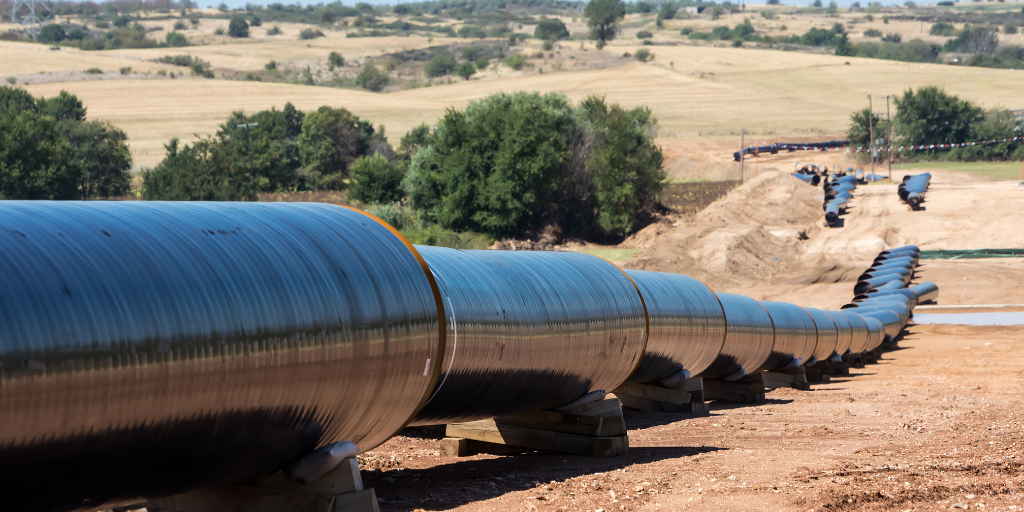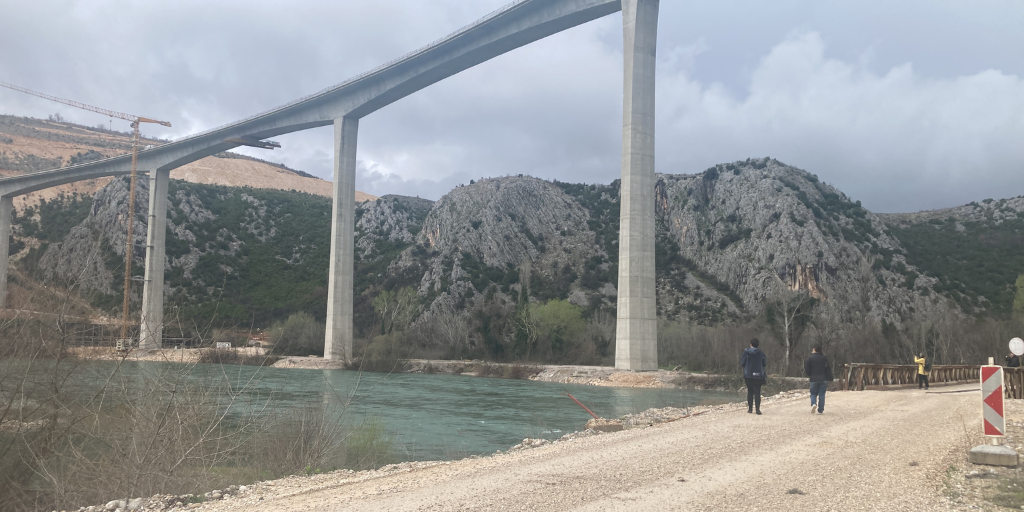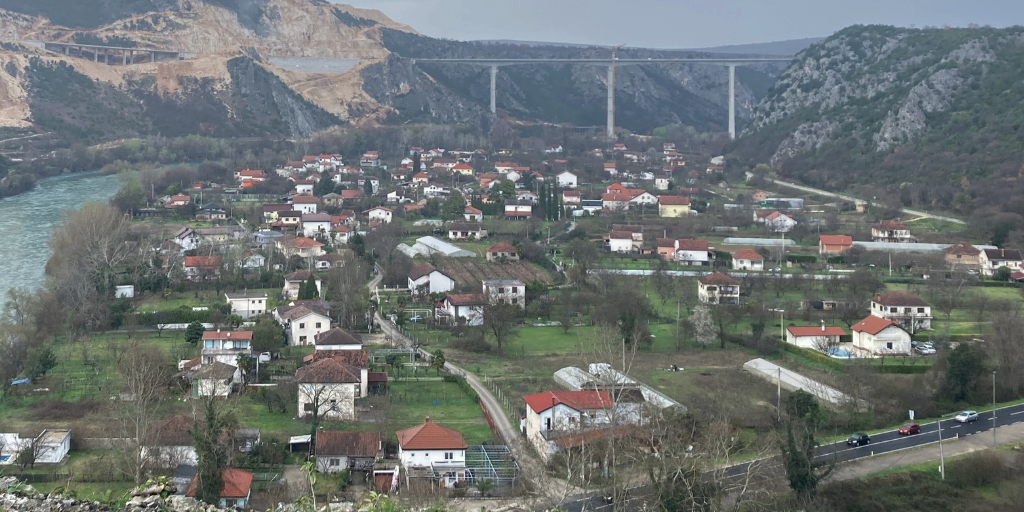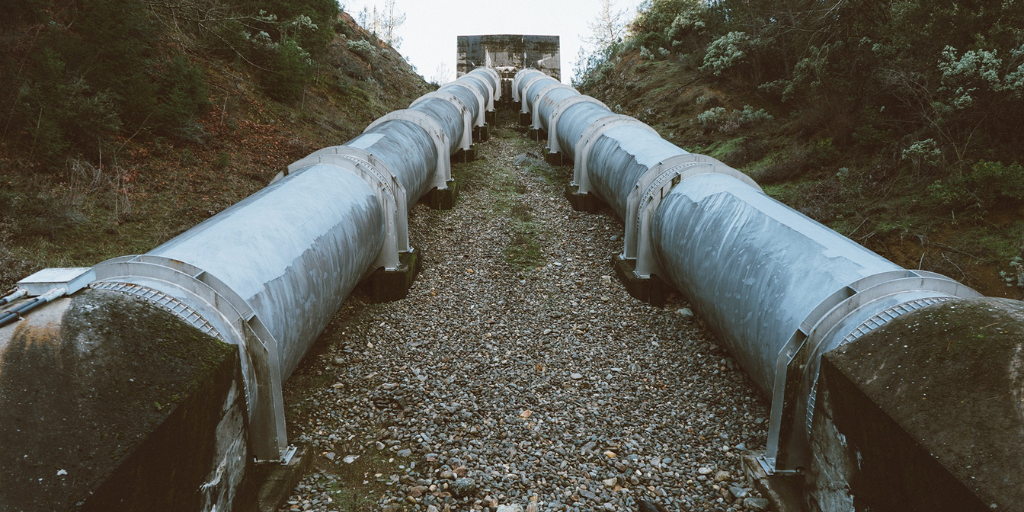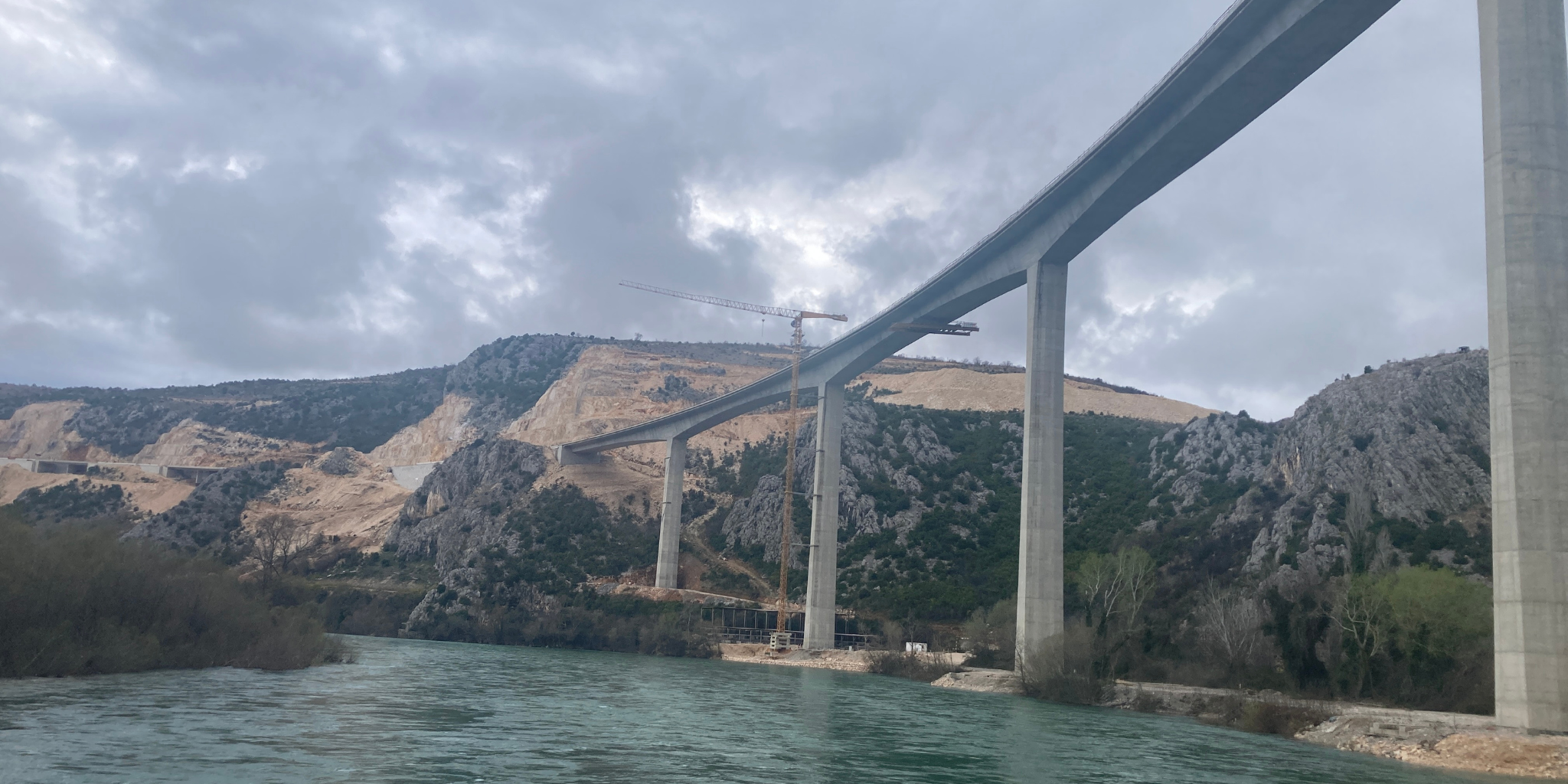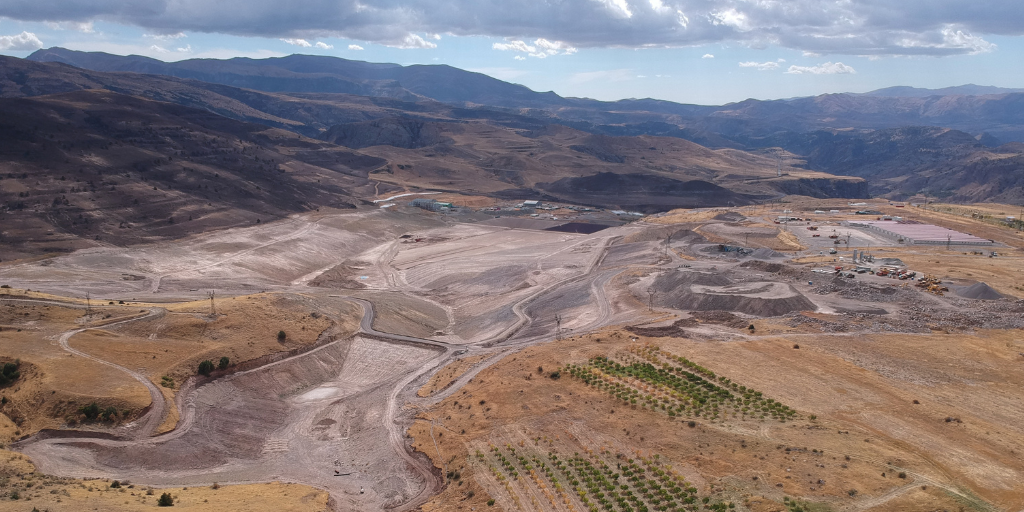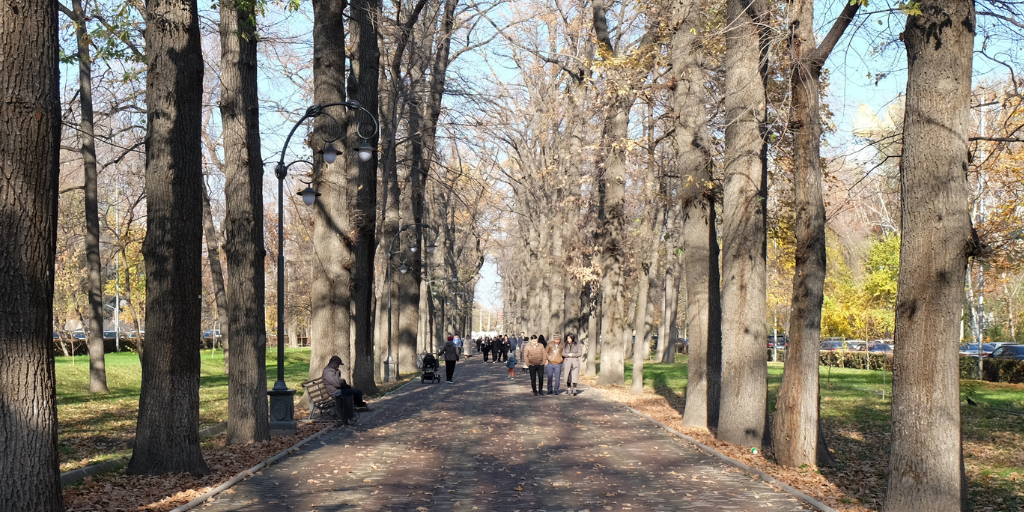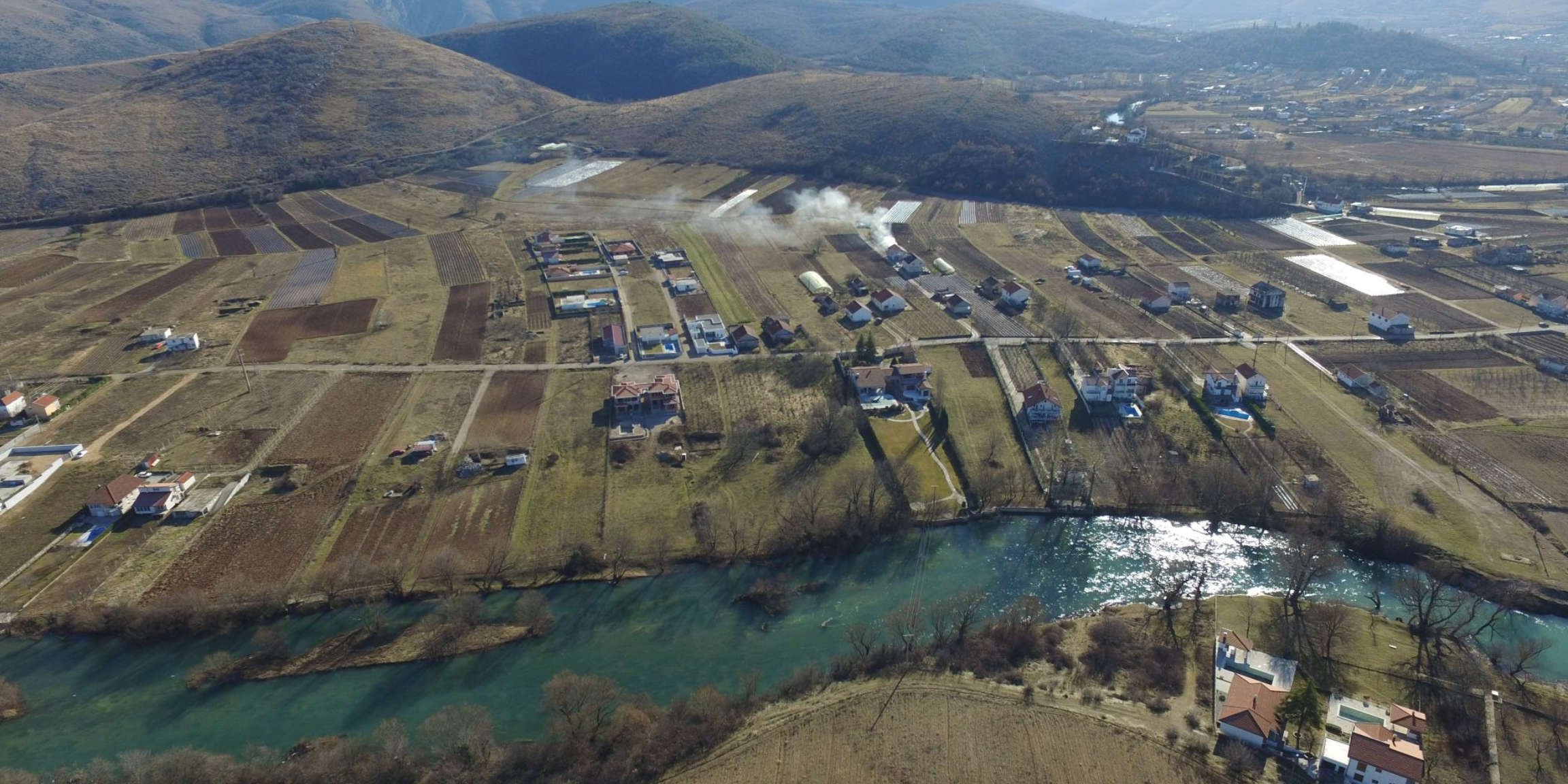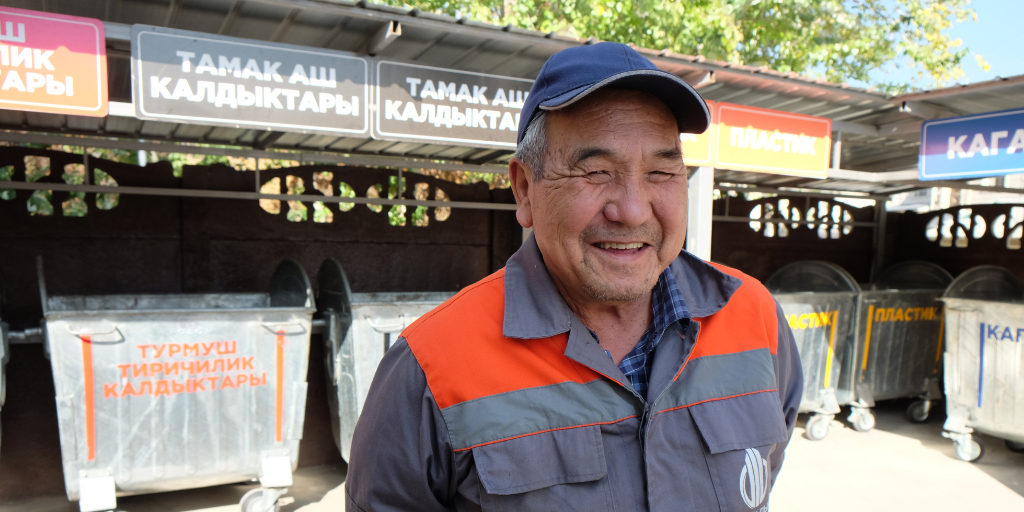EBRD approves EUR 98.6 loan for disputed fossil gas mega pipeline in North Macedonia
Press release | 25 April, 2024The European Bank for Reconstruction and Development (EBRD) yesterday approved a EUR 98.6 million loan for a fossil gas pipeline that would allow North Macedonia to increase its gas consumption by three to six times compared to 2021, its highest-consuming year so far. (1)
Read moreNew report: EU must act to prevent needless environmental and social damage by Corridor Vc motorway in Bosnia and Herzegovina
Press release | 5 April, 2024The European Commission and EU public banks must press for a revision of the Corridor Vc motorway route near Mostar in Bosnia and Herzegovina (BiH) if excessive environmental and social harm is to be avoided, finds a CEE Bankwatch Network report published today. (1)
Read moreThe Corridor Vc motorway in Bosnia and Herzegovina: A decisive test for EU standards
Publication | 5 April, 2024Based on a March 2024 site visit, this report examines two planned sections of the motorway– from Mostar South to the Kvanj Tunnel and from Konjic to Mostar, through the iconic Prenj mountain. It presents updated findings and underlines that it is crucial for the European Commission, EIB and EBRD to ensure that the route south of Mostar and via Prenj is re-examined and publicly consulted if they want to avoid many more years of delay.
Read moreNGOs request investigation into EBRD loan for North Macedonia mega gas pipeline
Press release | 25 March, 2024Environmental watchdogs CEE Bankwatch Network and Eko-svest have today asked the European Bank for Reconstruction and Development’s (EBRD) redress mechanism to investigate a planned loan for a major new fossil gas pipeline from Greece to North Macedonia.
Read moreMostar locals continue to resist Corridor Vc routing amid new tunnel loan talks
Press release | 19 March, 2024On 11-13 March a Bankwatch team visited Mostar and the nearby villages of Kosor, Ortiješ and Malo Polje. The team met with more than 25 landowners from the three villages, visited vineyards in Ortiješ, nearby construction sites on the Corridor Vc, and the Podveležje ridge. They discussed with local people the developments in the valley, ongoing legal action and the results of complaints at the EBRD’s accountability mechanism.
Read moreInternational groups stand in solidarity with Armenian environmental and human rights defenders facing defamation and criminalisation
Press release | 20 February, 2024In recent months, Armenian human rights and environmental defenders and organisations have been facing defamatory attacks in local media. They are increasingly being targeted through defamation, smear campaigns, intimidation and criminalisation for their peaceful, legitimate human rights work.
Read moreKyrgyzstan’s crackdown on civil society: Are international development banks doing enough?
Blog entry | 20 February, 2024Kyrgyzstan is one of the few countries in Central Asia with an active and vibrant civil society, represented by strong human right defenders and active environmental and social issue groups. Last year, however, the Kyrgyz government proposed two repressive laws on non-governmental organisations and the media, which represent a major setback for the country’s democratic future.
Read moreBosnia and Herzegovina: Corridor Vc motorway south of Mostar needs rerouting to meet EBRD and EU standards
Press release | 16 February, 2024A European Bank for Reconstruction and Development (EBRD) compliance review has vindicated Mostar complainants affected by the Corridor Vc in Bosnia and Herzegovina. Now the Federation of BIH government, with support from the EU and European public banks, must ensure effective remedy.
Read moreCan the EBRD deliver effective sustainable infrastructure in the transport and municipal sectors?
Publication | 1 February, 2024This briefing makes recommendations aimed at contributing to the preparation of the EBRD’s new Sustainable Infrastructure Strategy.
Read moreThe Western Balkans residential Green Economy Financing Facility: Results so far and recommendations for further action
Publication | 31 January, 2024This briefing assesses the effectiveness of the energy efficiency credit lines for households financed through the Green Economy Financing Facility, in terms of environmental sustainability and attractiveness for users in all six Western Balkan countries.
Read more